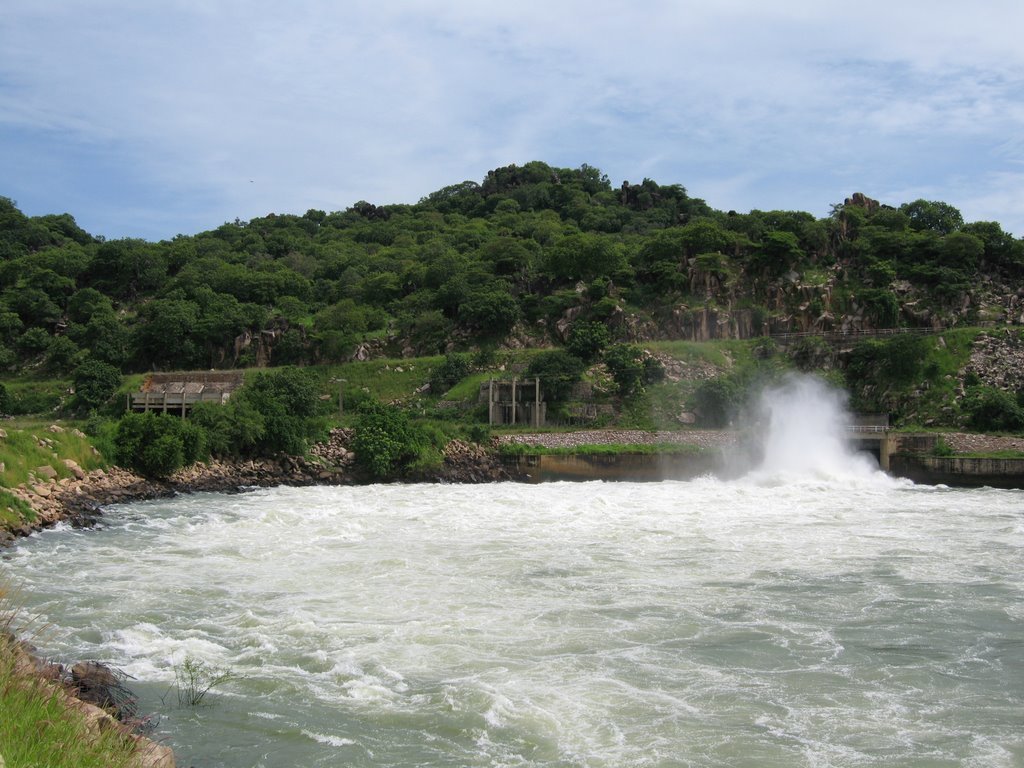First on the list was Lagdo Dam; it broke out of its bank and picked on about 30 people, leaving them lifeless. Then, River Benue puffed, and Niger grew strangely tall, reaching up to 12.8m(42ft). Kainji Dam became overblown, and Jebba could not be curbed, they both released water downstream, waters of death. In Adamawa and Taraba, Plateau and Benue, as well as Kogi, houses were water-soaked, arable lands washed, and livestocks drowned. By November, that year, about 363 Nigerians have bitten the dust; 2.1 million displaced; and 7 million gored on the head or the leg. It was a disaster. Education sector was hit; health, housing, agriculture, commerce, oil, industry, and electricity all had their shares in the loss. The 2012 flood that cost the Nigerian government and people about 2.6 trillion naira is a nightmare. May it not happen again!
Flood is a reccuring tragedy in this part of the world. It shows up every year and leaves us with a harvest of corpses. It sounds well to call it a product of climate change as this brings about high rate of rainfall in a shorter length of time; yet, the blame goes to all of us, and our government especially. Forest is the greatest knock on unfriendly climate change.Trees absorb water and are like canopies to the earth; besides, it is estimated that a tree absorbs about 20kg of CO2 every year, hence, its severe cushioning effect on the weather. But, what do we have in Nigeria? Forests are being forced out to create spaces for structures. Forest reserves are being decimated, and their resources exploited, even by governments. A good portion of our population still depends on trees for domestic fuel, and so about 4% of Nigerian rainforest is lost every single year.
Moreover, People build their houses in areas that used to be swamps and when the rain falls they are flooded. This is especially true of Lagos out of which a good portion will go under water should the ocean level rise. Nigerians patronise floodplains without seeing the need for constructing drainage systems. Where they exist, drainage systems are saturated as the populars dump refuse in them thus preventing the free flow of water. These and many more have been responsible for the damaging floods we have experienced over the years. In 2015 alone, over a 100,000 Nigerians were displaced amidst 53 deaths, and between 2016 and 2018, there have been over 200 deaths and hundreds of thousand displaced again. It’s all our fault.
“Floods,” says the Nigerian Meteorological Agency, “have become a perennial challenge with increasing intensity each year, leaving colossal losses and trauma.” The fear this time is that the raining season is almost here, and who knows what the climate has in stock for you and me. More saddening is the reality that the Nigerian government has refused to give this yearly disaster the attention it requires. Meanwhile, a single month of intense flood could have a more damaging effect on the economy and the security of lives than Bokoharam and Fulani Herdsmen Militia have done over the years. If more Nigerians become homeless this year, what becomes of us? I see frustration; I see conflicts.
(This piece is in continuation of A People in Conflict series)
Ayeni Faith Damilola writes for Green Global Environmental Network (GGEN)
For Feed Back: 08100426192, 08033431685 (whatsapp only)



Leave a Reply